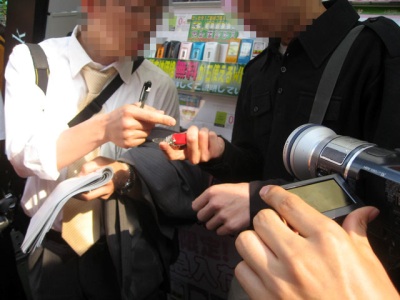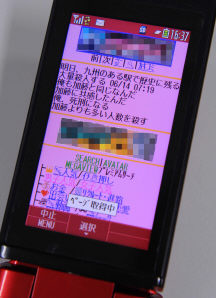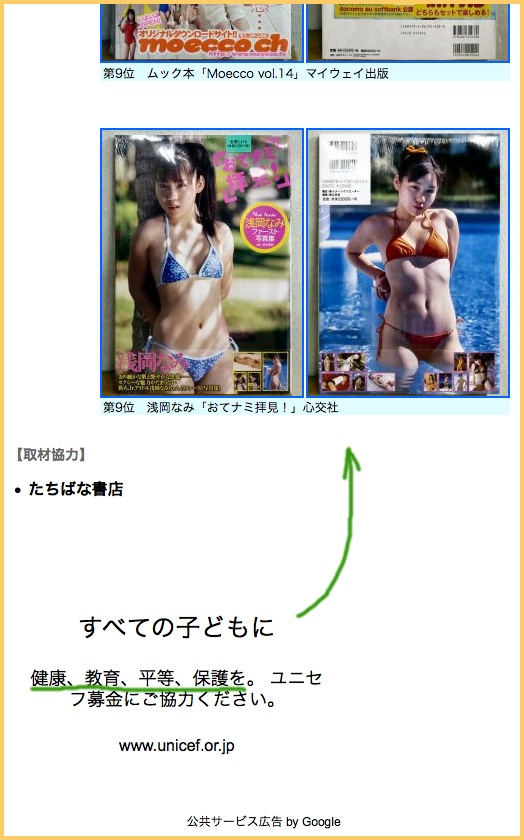Esta semana han matado a tres reos de muerte en Japón. Las ejecuciones están aumentando en los últimos años, y yo tenía la impresión de que en Japón la pena de muerte era algo que mucha gente daba por hecho porque «son las reglas» y por eso no se oponían. Me he aliviado al leer esta noticia.
今週、日本で死刑囚が3人殺された。最近死刑執行が増えているけど、僕の印象では多くの日本人の意見は「そういうルールだから」とか「そんなもん」で、反対しないということだった。このニュースを読んでちょっと安心した。
This week, three people who were condemned to death in Japan were killed. Executions have increased these years, and I had an impression that many people in Japan thought that «it’s the rules» and thus didn’t oppose. I felt a little relief reading this piece of news.
亀井静香 Shizuka Kamei
(Kagi Rie, Creative Commons Attribution ShareAlike 3.0 Unported)
Shizuka Kamei además de un político japonés es el líder del Grupo de Diputados por la Abolición de la Pena de Muerte. Estas algunas frases de la protesta que ha dirigido al Ministro de Justicia, con respecto a las ejecuciones de esta semana y la pena de muerte en general.
«Las vidas de tres personas más han sido eliminadas por el poder del estado. ¿Acaso va a ayudar esto a los ciudadanos a ser más felices?»
«Es obvio que [la pena de muerte] no tiene poder de disuasión»
«En el ámbito de la sociedad internacional, este aumento de ejecuciones es anormal. Japón no tiene derecho a abogar por los derechos humanos en la ONU.»
亀井静香氏は政治家であり「死刑廃止を推進する議員連盟」の会長でもある。下記は死刑と今週の死刑執行についての法相宛の抗議の引用。
「新たに3人の命が国家権力に消された。何か国民の幸せにつながっていくものが生まれたのか」
「(死刑制度による)抑止力がないのは明白」
「執行数が増えているのは、国際社会では異常。国連で人権を主張する資格はない」
Shizuka Kamei is a Japanese politician and also the leader of the League of Diet Members for Abolishment of Death Penalty. Below are some quotes of the protest he addressed to the Minister of Justice, about this week’s executions and death penalty in general.
«The lives of three more people have been deleted by the power of the state. Is this good for the citizens’ happiness?»
«It is obvious that [death penalty] has no deterrent power»
«In the international society, this increase in executions is abnormal.
Japan has no right to speak about human rights at the UNO.»
Fuente ソース Source: 痛いニュース(ノ∀`) / Itai News



